*********
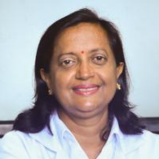
Tista Prasai is 'best performing' NAST employee
Tista Prasai Joshi, a 2024 TWAS-Samira Omar Innovation for Sustainability awardee, has been awarded by the Nepal Academy of Science and Technology (NAST) as best-performing employee. She has also received an appreciation letter from NAST, for receiving the TWAS-Samira Omar award by the Minister of Education, Science and Technology.
Prasai is currently working as a senior scientific officer at NAST. Her research is currently focusing on the identification of high-risk microbial and emerging pollutants in water, and the removal of water pollutants like organic arsenic-based compounds, through the application of natural and synthetic adsorbents. Through her research, she has given contributions to the field of water purification and sanitation in Nepal.
In 2019, she was one of the OWSD-Elsevier Foundation Award winners for research in environmental microbiology and also OWSD-Early Career Fellowship.
*********

Utrecht University honours Harini Nagendra
Ecologist Harini Nagendra, elected to TWAS in 2024, will receive an honorary doctorate from Utrecht University on 26 March. Nagendra is the director of the School of Climate Change and Sustainability at Azim Premji University, in Bengaluru, India and has been selected for her scientific and social contributions to a healthier planet. The award is shared with environmental epidemiologist Cathryn Tonne, the co-director of the Lancet Countdown for Health and Climate Change in Europe.
Nagendra has been committed for more than 30 years to promoting forest conservation and urban sustainability. Her scientific interests include remote sensing, biodiversity, climate change, urban commons and urban resilience. By merging interdisciplinary approaches, she has used biodiversity and institutional analysis to clarify how the human presence and land-use practices affect the ecosystems and their functioning, especially in tropical regions. She is the recipient of numerous awards including the 2017 Clarivate Web of Science award, the 2013 Elinor Ostrom Senior Scholar award, and 2009 US National Academy of Sciences Cozzarelli Prize. She has authored more than 200 scientific papers, publishing, among others, in Nature, Nature Sustainability, and Science. The author of several popular books, she wrote the well-known Nature in the City: Bengaluru in the Past, Present and Future. She was a lead author of IPCC AR5, and sits in the advisory board of the Future Earth Urban KnowledgeAction Network.
*********
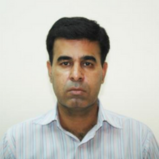
Muhammad Raza Shah appointed the permanent director of ICCBS
Muhammad Raza Shah, a 2010-2014 TWAS Young Affiliate and 2025 TWAS Fellow has been selected as the permanent director of the International Centre for Chemical and Biological Sciences (ICCBS). The appointment, which will last four years, rewards Shah's outstanding contributions to nanomedicine and supramolecular chemistry.
Shah is also the UNESCO chair on medicinal and bio-organic natural product chemistry, president of the Chemical Society of Pakistan, and visiting professor at Hunan University of Traditional Medicine in China. He has authored seven books, edited four books published by Elsevier, and has published more than 528 research articles in international and national journals. Among his achievements there are also four U.S. patents. He is mentoring a large number of young researchers and, so far, 46 PhD students and 64 Master of Science and Master of Philosophy students have completed their studies under his supervision.
*********
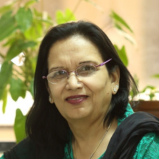
2024 Vinfuture Prize to TWAS Fellow Firdausi Qadri
Firdausi Qadri, an infectious disease specialist of Bangladesh and a TWAS Fellow since 2011 is the 2024 VinFuture Special Prize for Innovators from Developing countries Laureate. She received the award for "... for innovative improvement of oral cholera vaccination in developing countries", during a public ceremony in the presence of H.E. Pham Minh Chinh, Prime Minister of the Socialist Republic of Vietnam. The award ceremony took place on 6 December 2024.
Qadri is a senior scientist with the International Centre for Diarrhoeal Disease Research, Bangladesh (ICDDR,B), where she has carried out clinical studies with a live vaccine against cholera. Her research proved that a single oral dose of vaccine is enough to protect people against the infection caused by Vibrio cholerae, a bacterium that contaminates food and water. The investigation opened the door to large-scale vaccination campaigns in Bangladesh and other poor countries, to prevent cholera outbreaks. Qadri has published more than 330 papers in peer-reviewed journals, and received several honours including the 2006 Gold Medal from the Bangladesh Academy of Sciences for outstanding research in Biological Sciences, the TWAS-C.N.R. Rao Prize for Scientific Research, and the ambassadorship of the American Society for Microbiology for Bangladesh. In 2014, she was elected to the UN Secretary-General's High-Level Panel on Technology Bank for the Least Developed Countries.
*********
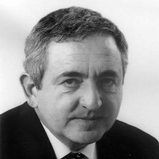
The Bulgarian Academy of Sciences awards TWAS Fellow Asaf Hajiyev
Mathematician Asaf Haji Oglu Hajiyev, a TWAS Fellow since 2004 and the secretary-general of the Parliamentary Assembly of the Black Sea Economic Cooperation (PABSEC), has received the Honorary Medal from the Bulgarian Academy of Sciences. The award ceremony was held in Sofia, Bulgaria, in November 2024.
Hajiyev was awarded for his significant contribution to raising the role of science and national academies of sciences in the cooperation between the PABSEC countries.
Today, Hajiyev is the department chair at the Institute of Cybernetics of the Azerbaijan National Academy of Sciences (ANAS), and head of laboratory at the ANAS Institute of Control Systems.
He was elected PABSEC vice-president for the terms 2006–2008 and 2011–2013. Since 2015, he has continued serving PABSEC as its secretary-general. Hajiyev is a member of eight scientific organizations including the Mongolian National Academy of Sciences, the Academy of Sciences of Moldova, and the Bernoulli Society for Mathematical Statistics and Probability. He sits in the editorial board of four international scientific journals.
*********
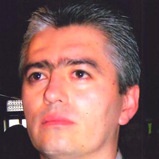
Prof. John Fredy Barrera Ramírez receives the Medal for University Excellence
TWAS Alumnus John Fredy Barrera Ramírez, a former TWAS Young Affiliate (2014–2018) and a professor with the physics institute at Antioquia University (Colombia), has been awarded the Gold category of the 2024 Francisco José de Caldas Medal for University Excellence.
This award honours his career, during which he has been the recipient of multiple awards and recognitions at the international level from prestigious scientific institutions.
In 2022, the Alejandro Ángel Escobar Foundation of Bogotá, Colombia, awarded him an honorary mention in the National Awards of Science. In 2020, the Municipality of Medellín and the Higher Education Agency of Medellín Sapienza, selected Ramírez as the recipient of the Greatest impact research during 2019–2020 award.
In 2014, Ramírez received the international ICO/ICTP Gallieno Denardo Award from the International Commission for Optics and the International Centre for Theoretical Physics. Two years later, he was selected as Future Leader 2016 in the Science and Technology in Society (STS) Forum, an initiative established in 2004 to offer a platform to foster open discussion about problems stemming from the application of science and technology.
At Antioquia University (AU) since 2006, today Ramírez is the coordinator of the AU optics and photonics group since 2011, and the principal investigator of 17 projects. He holds two invention patents and one published patent applications, and has more than 80 publications in his name in international peer-reviewed journals.
*********
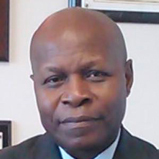
Mathematics award named after TWAS Fellow
Outstanding African mathematicians may now vie for a new prize that the African Mathematical Union has established in November 2024. The award is named after Gaston Mandata N’Guerekata, elected to TWAS in 2014, who is now associate dean and a university distinguished professor of mathematics, in the School of Computer, Mathematical and Natural Sciences, Morgan State University (MSU), in Baltimore, United States of America.
N’Guerekata earned his PhD in mathematics from the University of Montreal, in Canada. Later, he served as dean, vice-rector, and rector of the University of Bangui, in the Central African Republic. In 1996, he joined MSU as a lecturer, where he built a brilliant career.
He is the founder and chief editor of the International Journal of Evolution Equations and the Journal of Nonlinear Evolution Equations and Applications, as well as the author and co-author of more than 260 scientific publications and eight books.
His memberships include the African Academy of Sciences, American Mathematical Society, National Association of Mathematicians, Mathematical Association of America, International Society for Applied Analysis and Computations, and International Federation of Nonlinear Analysts.
******
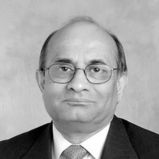
Tariq Salim Durrani receives the IEEE Haraden Pratt Award
Indian scientist Tariq Salim Durrani, a 1995 TWAS Fellow, is a research professor of engineering at the University of Strathclyde in Glasgow, Scotland. As a tribute to his 40 years of service and top-notch activity, the Institute of Electrical and Electronics Engineers (IEEE) has named him the 2024 recipient of the IEEE Haraden Pratt Award. The award, established in 1971, honours his 'sustained leadership and outstanding contributions to the IEEE in education, technical activities, awards, and global connections'.
Durrani's interests and skills include communication, signal processing, artificial intelligence, and technology management. In 2019, he served as the co-chair of the advisory board for the UNESCO report 'Engineering the UN Sustainable Development Goals: Current and future trends in engineering around the world'. In 2022, he led the IEEE delegation to the COP-26 climate change conference.
A Fellow of the Institute of Electrical and Electronics Engineers, he is also a Fellow of the Royal Society of Edinburgh, the Royal Academy of Engineering (UK), and the Institution of Engineering and Technology. He has authored 360 publications, supervised 45 PhDs, and has held visiting appointments at Princeton, University of Southern California, Stirling, and Tianjin Normal University, China.
******
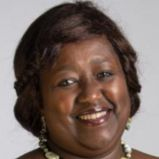
Agnès Binagwaho honoured for supporting women with gynecologic cancers
Rwandan pediatrician Agnès Binagwaho, a 2021 TWAS Fellow, is strongly committed to improving the health and well-being of women with cancer. For her efforts, the International Gynecologic Cancer Society has awarded her with the 2023 Humanitarian Award. The award is a prestigious international recognition given to people who have made exceptional contributions to the field of gynecologic oncology.
Since her return to Rwanda in 1996, soon after the genocide, Binagwaho has dedicated her efforts to grant quality healthcare. She served as the executive secretary of the Rwanda National AIDS Control Commission, as permanent secretary of the Ministry of Health, and as the Minister of Health. She also served as a senior advisor to the director-general of the World Health Organization. As a pediatrician, Binagwaho is skilled in neonatology and pediatric emergencies.
To prevent cervical cancer, which is caused by HPV infection and is the fourth most common cancer in women globally, she has spurred a national vaccination campaign that succeeded in granting immunization to over 90% of school girls in Rwanda. She is a member of the US National Academy of Medicine, and a fellow of the African Academy of Sciences. Today, Binagwaho is a retired vice-chancellor at the University of Global Health Equity.
*******
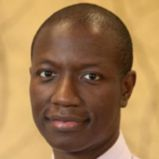
Bruce Ovbiagele awarded by the American Brain Foundation
Bruce Ovbiagele, a professor of neurology and associate dean at the University of California at San Francisco, elected to TWAS in 2023, has received the American Brain Foundation annual Scientific Breakthrough Award. The award honours individuals and groups who have advanced the care of patients affected by neurological disease.
Ovbiagele's work seeks to support health equity and inclusion and improve stroke treatment outcomes. He currently leads studies on strokes in the US and sub-Saharan Africa, with the final goal of translating evidence-based interventions into clinical practice and community settings. He uses innovative trial designs and genomic technologies, succeeding in reducing the death rate and disability for high-risk populations in low-resource settings.
A member of the American Academy of Neurology since 1998, he currently serves on its board of directors (2023-2025). He is also the editor-in-chief of the Journal of the American Heart Association, and has more than 630 peer-reviewed articles with over 130,000 citations.
Ovbiagele is a member of the National Academy of Medicine and Association of American Physicians; the International Science Council; the World Stroke Organization; the American Association for the Advancement of Science; the Royal College of Physicians (London) and the Royal Society of Public Health.
********
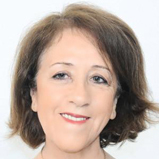
Rajaa Cherkaoui El Moursli in the Forbes' 50 Over 50 list for the Middle East and Africa
Nuclear physicist Rajaa Cherkaoui El Moursli, a 2018 TWAS Fellow and a professor with the Mohammed V University, in Rabat, Morocco, has been included in the 2024 Forbes list of 50 outstanding women over 50, for the Middle East and Africa.
She has been selected for her outstanding scientific contributions which include working in the team that proved the existence of the Higgs Boson. The Higgs boson is an elementary particle that gives mass to other particles such as electrons and quarks.
Cherkaoui El Moursli earned a PhD in nuclear physics from the University of Joseph Fourier in Grenoble, France in 1982. Upon her return to Morocco, she was appointed the director of the Nuclear Physics Laboratory in Rabat.
In 1996, she became the Moroccan representative in the ATLAS Experiment at CERN, the European Organization for Nuclear Research headquartered in Geneva, Switzerland.
In 2015, she was the first Moroccan scientist to receive the L'Oréal-UNESCO Award for Women in Science, representing Africa and the Arab States, and was named the Moroccan Woman of Year 2015 by the magazine Illi. In 2017, the Organization of Islamic Cooperation honoured Cherkaoui El Moursli for her outstanding contributions to science and technology in the Islamic world.
**********
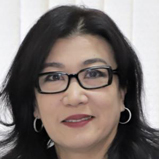
UNESCO-Carlos J. Finlay Prize goes to Uzbek TWAS Fellow Dilfuza Egamberdieva
Uzbek microbiologist Dilfuza Egamberdieva, elected to TWAS in 2022, is the recipient of the 2023 UNESCO–Carlos J. Finlay Prize for Microbiology. She received the prize on 14 November 2023, at UNESCO headquarters, in Paris, France.
Egamberdieva researches plant-microbe interactions to spot beneficial bacteria that make crops more resistant to drought, hot temperatures, and high salt concentrations. The ultimate goal of her work is to improve plant productivity, and reduce the environmental damages caused by the massive use of chemical fertilizers in agricultural practices.
The Carlos J. Finlay Prize was established in 1980 to reward scientists who achieve outstanding results in the field of microbiology and related applications. It is named after Cuban epidemiologist Carlos J. Finlay, who discovered that yellow fever is caused by mosquitoes infecting people.
Egamberdieva heads a research group at the Faculty of Biology, National University of Uzbekistan, in Tashkent. She works on cotton, tomatoes, wheat and other vegetables. Her expertise, makes her an authoritative voice in Uzbekistan in the evaluation of national programmes and projects regarding agricultural research for sustainable development.
She currently serves on the High-Level Panel of Experts on Food Security and Nutrition (HLPE), the science-policy interface of the UN Committee on World Food Security. She is a member of the Global Young Academy, and the 2012 recipient of the TWAS Prize in Agricultural Sciences.
***
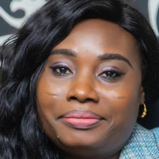
Olanike Adeyemo reappointed to UN High-Level Panel of Experts on Food Security and Nutrition
Olanike Adeyemo is a 2019 TWAS Fellow and a professor in the Department of Veterinary Public Health and Preventive Medicine, University of Ibadan, in Nigeria.
She has been reappointed to the Steering Committee of the High-Level Panel of Experts on Food Security and Nutrition (HLPE-FSN) of the United Nations Committee on World Food Security. The HLPE-FSN is the United Nations body assessing scientific matters related to global food security and nutrition.
Adeyemo is one of three African members elected to the Steering Committee, and her mandate will last two years, until the end of 2025.
Her reappointment, the citation reads, reflects her exceptional experience and expertise, and her immense contribution to food security and human nutrition globally.
Adeyemo is the Secretary to Oyo State Government since July 2023, and a leader in cross-cutting research merging issues on environment, livestock, wildlife, and humans. Her interests cover environmental toxicology, aquatic, and wildlife disease epidemiology, emerging and re-emerging infectious diseases, and food safety.
Through her research, she proved the complex bonds between the environment with its living creatures and human health, which have significant policy implications for Nigeria, the African Continent, and the rest of the world.
She is a Fellow of the Nigerian Academy of Science (2016), and the African Academy of Sciences (2012). She was named 'Scientist of the Year 2020' in the Natural Sciences category of the Open International Competition by the International Achievements Research Center, Chicago, USA.
***
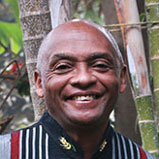
Jonah Ratsimbazafy receives the 2023 Seacology Prize
Jonah Ratsimbazafy, a faculty lecturer at the University of Antananarivo in Madagascar, and a 2021 TWAS Fellow, is the recipient of the 2023 Seacology Prize.
Ratsimbazafy is a passionate conservationist who has been devoting his life and career to the protection of endangered lemurs, a primate species, and other animals in Madagascar.
The Seacology Prize honours islander men and women, who achieved exceptional results in preserving the environment and culture of their island.
Ratsimbazafy is the co-vice chair of the Madagascar section of the International Union for Conservation of Nature, Species Survival Commission Primate Specialist Group. He is also the president of the Madagascar Primate Research Group. In February 2020, he was elected the president of the International Primatological Society.
More than 10 years of observations led Ratsimbazafy to discover a new species of lemures, Microcebus jonahi, which has been named after him. His discovery was displayed in a short film, titled “Good news in bad time: Welcome Microcebus jonahi,” available on YouTube.
His unceasing conservationist efforts earned him several awards, including the Galante Family Winery Conservation Scholarship of the International Primatological Society, in 2002; the Disney Conservation Hero Award, in 2015; and the African Primatological Society Award, in 2019.
***
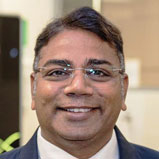
Rajeev Varshney elected to the Royal Society
Agricultural scientist and 2016 TWAS Fellow Rajeev Kumar Varshney was elected to the Royal Society in July 2023. Varshney is the director of the Centre for Crop & Food Innovation at Murdoch University in Australia, and is the first person from this university to receive such an honour.
He is an expert in crop genomics, genome-assisted breeding, and plant stress tolerance. His discoveries have been pivotal in crop improvement programmes including the productivity of 'orphan' tropical crops. Orphan crops are named this way because the scientific community neglects them due to their low commercial value on international markets, even though small farmers grow them for their nutritional value. They include chickpea, pigeonpea, and groundnut.
Through his research, Varshney has addressed global challenges such as making agriculture more sustainable and increasing food security in light of climate change.
By exploiting genomic variation he succeeded in breeding crop varieties that are more resistant to drought and pests, and are more nutritious as well.
Varshney's other memberships include the African Academy of Sciences (2022), the Indian Academy of Sciences (2019), and the German National Academy of Sciences Leopoldina (2016).
***

Kauser Abdulla Malik appointed as minister in Pakistan
Kauser Abdulla Malik, a 1996 TWAS Fellow, is a recently appointed minister in the caretaker Government of Pakistan, a temporary political body acting until the official government is formed.
A native of Lahore, Malik is currently a Distinguished National Professor of biotechnology and Dean Postgraduate Studies with the Forman Christian College in Lahore. His scientific interests cover microbial diversity, bacteria-mediated plant transformation and crop biofortification, all techniques that allow breeding crops with increased nutritional properties.
He also studies how to enhance the fertilizer use efficiency in wheat through genetic engineering procedures. Malik is also active in outreach activities, which include serving as a member syndicate at the University of Veterinary and Animal Sciences in Lahore, and member of the executive board of the International Centre for Chemical and Biological Sciences (ICCBS), in Karachi.
He received the Hilal-e-Imtiaz (2004), Tamgha-e-Imtiaz (1988), Sitara-e-Imtiaz (1998), ISESCO Prize in Biology (1997), and the Gold Medal from the Pakistan Academy of Sciences (1996).
***
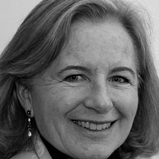
Ana Maria Cetto Kramis receives UNESCO-Kalinga Prize
Ana María Cetto Kramis, a TWAS Fellow since 1999, has received the 2023 UNESCO-Kalinga Prize in recognition of her outstanding efforts and contributions to science outreach and popularization.
She was awarded on 10 November by the Assistant Director-General for Natural Sciences at UNESCO, Lidia Arthur Brito, during a ceremony for the World Science Day for Peace and Development.
Cetto Kramis, a physicist and a research professor at the Institute of Physics, National Autonomous University of Mexico, has contributed to the development of stochastic quantum mechanics and stochastic electrodynamics.
From 2003 to 2010, she served as Deputy Director-General at the International Atomic Energy Agency in Vienna, Austria.
She is passionate about the science of light, and was among the promoters of the 2015 International Year of Light and a supporter in the establishment of the annual International Day of Light. Cetto is currently working on a project seeking to improve urban lighting and contain light pollution.
Today, she is president of the UNESCO Open Science Advisory Committee and holds the UNESCO Chair on Science Diplomacy and Heritage.
The Kalinga Prize is UNESCO's oldest prize. It was created in 1951 after a donation from Mr Bijoyanand Patnaik, Founder and President of the Kalinga Foundation Trust in India, and is awarded every two years.
***
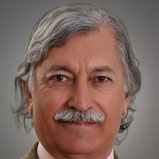
Mohammad Qasim Jan appointed as minister in Pakistan
Mohammad Qasim Jan, a 2002 TWAS Fellow, has been recently appointed as minister in the caretaker Government of Pakistan. A caretaker government is a temporary political body in charge of carrying out duties until the official government is formed.
A distinguished national professor (emeritus) with the University of Peshawar, and the past president of the Pakistan Academy of Sciences (2018–2020), Jan is a geologist by education, with a PhD from the University of London. He is renowned for his studies addressing the Earth’s crust-building processes that gave birth to the Andean margins.
He has held several positions at national and international levels and has served as vice-chancellor of three universities. To acknowledge his outstanding contributions to the field of geological sciences, the Government of Pakistan has bestowed him with three civil awards: Hilal-e-Imtiaz (2010), Sitara-e-Imtiaz (1999), and Tamgha-e-Imtiaz (1993).
He is the author or editor of hundreds of papers and books, and a fellow of several academies and professional bodies, including the Pakistan Academy of Sciences, the Islamic World Academy of Sciences, and the Mineralogical Society London.
***
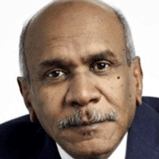
Elfatih Eltahir elected to the US National Academy of Engineering
Elfatih Eltahir, a 2023 TWAS Fellow and a professor of civil and environmental engineering at the Massachusetts Institute of Technology (MIT), was elected to the US National Academy of Engineering (NAE).
NAE membership is given to individuals who have made outstanding contributions to engineering research, practice, or education, pioneering new fields of technology, and bringing innovative approaches in the field. Eltahir was elected because he developed knowledge of how climate and land use impact water availability, environmental and human health, and vector-borne diseases.
At MIT, where he is an H.M. King Bhumibol Professor of hydrology and climate, he has developed two sophisticated numerical models. His Regional Climate Model and the Hydrology, Entomology, and Malaria Transmission Simulator are now used to make climate projections.
Eltahir's scientific interests cover a wide range of topics including hydrology, water resources, climate variability, and climate change. Through his projections and simulations, he analysed how natural phenomena and the society evolve and intertwine, focusing on climate-related events such as droughts over the Mediterranean basin, and extreme heatwaves in Asia.
Eltahir is a member of the Sudanese National Academy of Sciences and the recipient of several awards, including the Hydrologic Science Award (2017).
***
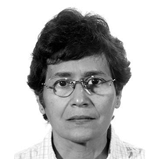
L’Oréal-UNESCO award goes to FTWAS Anamaría Font
Anamaría Font, a TWAS Fellow since 2013, is the recipient of a 2023 L'Oréal-UNESCO For Women in Science International Awards. Every year, the awards acknowledge five outstanding women scientists who gave seminal contributions to scientific advancements either in life sciences (in even years), or physical sciences, mathematics and computer science (in odd years). An international jury selects the awardees, who receive €100,000.
Font is a theoretical physicist and a professor at the School of Physics, Faculty of Science, of the Central University of Venezuela, in Caracas. Her scientific interests have addressed the primordial components of matter in the context of the string theory.
In 1998, jointly with former ICTP Director Fernando Quevedo, she received the ICTP Prize in the field of High Energy Physics. The prize acknowledged the importance of her studies that led to a better understanding of the low energy string physics, as well as various stringy symmetries. In 1991, she received the Lorenzo Mendoza Fleury Science Prize, the most important award offered by the private sector to contemporary talented scientists from Venezuela who have shown creativity and productivity.
***
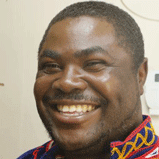
Abdon Atangana wins the UNESCO–AI Fozan International Prize
Cameroonian mathematician and 2022 TWAS Fellow Abdon Atangana has received the UNESCO–AI Fozan International Prize for the Promotion of Young Scientists.
The biennial award, this year in its first edition, gives recognition to five young researchers in science, technology, engineering, and mathematics (STEM disciplines), promoting gender equality and easing the choice of a career.
Atangana, a professor at the University of the Free State in Bloemfontein, South Africa is a world-renowned scholar in the field of fractional calculus, fractional differential equations, and mathematical modelling. He is the founder of numerous mathematical operators and some numerical methods that are currently used by scientists in different disciplines.
The mathematical models resulting from his research have important applications in predicting the course of an infection in a given community, providing reliable estimates on the number of new infections, recovered cases, and fatalities.
In 2019, he was named one of the world’s most highly cited mathematicians and one of the top 1% of scientists on the global Clarivate Web of Science list.
In 2020, he received the first-ever TWAS-Mohammad A. Hamdan Award, named after TWAS’s late Vice President for the Arab Region, who passed away earlier in the same year.
***

Tshilidzi Marwala is the new rector of the United Nations University
Tshilidzi Marwala, an artificial intelligence engineer from South Africa and a 2010 TWAS Fellow has been appointed as the seventh United Nations University (UNU) Rector. His five-year term mandate started on 1 March 2023. UNU is a global research and training organisation with institutes and programmes in 12 countries.
Before this appointment, Prof. Marwala served as the Vice-Chancellor and Principal of the University of Johannesburg, from 2018‒2023. Prior than that, he was the Deputy Vice-Chancellor for Research and Internationalization (2013‒2017) and the Executive Dean of the faculty of engineering and the built environment (2009–2013). Early in his career, he served as associate professor and full professor at the University of the Witwatersrand, in South Africa (2003–2008).
As a researcher, he carried out investigations in social science, economics, medicine and finance, and served in several capacities with UN bodies including UNESCO, UNICEF, WHO and WIPO.
Among more than 40 awards that he has received there is the South Africa's highest honour, the Order of Mapungubwe. He authored more than 20 books, and more than 200 magazine articles and newspaper editorials.
In 2021, the Institute of IT Professionals South Africa named Marwala IT Personality of the Year. In 2019, he was among the distinguished panellists at TWAS round table held in the frame of the science festival Trieste Next.
***

Wolfgang Lutz awarded Austrian Science Prize
Wolfgang Lutz, the Founding Director of the Wittgenstein Centre for Demography and Global Human Capital has been awarded the 2023 Science Prize of the Austrian Research Association. Lutz, who was elected a TWAS Fellow in 2014, holds a PhD in demography from the University of Pennsylvania (USA), and served as the Director of the Vienna Institute of Demography (2002–2022).
The prize, now in its 16th edition, is bestowed every two years to first-class scholars to showcase the high level of Austrian research.
Lutz is recognised worldwide as an outstanding scientist. His interests focus on global population development, with in-depth investigations on the interactions among demographic changes, the society, the economy, and the environment.
Numerous awards speak about his achievements. The awards include the ERC Advanced Investigator Grant, which he received in 2008, 2012, and 2016, the 2010 Wittgenstein Award (often called Austria's Nobel Prize), and the 2009 Mattei Dogan Foundation Award of the International Union for the Scientific Study of Population.
Lutz is a member of many scientific academies including the Austrian, German, and Finnish Academies of Sciences. As many as 24 of his over 280 scientific articles were published by leading scientific journals like Science, Nature, and Proceedings of the National Academy of Sciences.
***
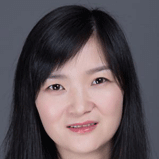
The UNESCO–AI Fozan International Prize awards TWAS Alumna Fu Qiaomei
TWAS Alumna Fu Qiaomei, head of the molecular paleontology laboratory at the CAS Institute of Vertebrate Paleontology and Paleoanthropology, is a 2023 laureate of the UNESCO–AI Fozan International Prize. The prize, now in its 1st edition, gives recognition to young researchers in science, technology, engineering, and mathematics (STEM disciplines), for their transformative research addressing global challenges.
Prof. Fu is a leading scholar in evolutionary genetics and population genetics. She has retrieved ancient DNA from human remains and sediments and has used it to build an evolutionary map of Eurasian populations' gene flow across the past 100,000 years.
Her findings have shed light on the role of our ancestors in shaping the genetic makeup of modern humans. In fact, she spotted the appearance of several DNA mutations that modulated skin traits, hair thickness, and the development of sweat glands.
She is the author of more than 30 academic papers in journals like Nature, Science, Cell, and Proceedings of the National Academy of Sciences. One of her papers has been awarded The Top 2014 Annual Ten Scientific Events by Nature.
